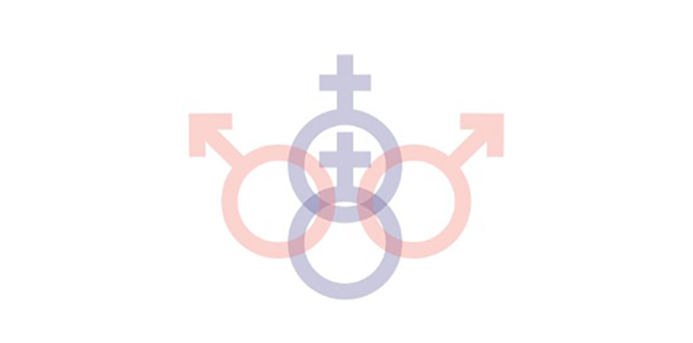Here on the North Shore most couples base their relationship on the expectation of monogamy.
If you’re married, becoming intimately involved with another person is an act of betrayal, and unless you change your cheating ways, your relationship is doomed.
But people who practice polyamory (Greek for many loves) don’t see it that way. They believe you can have a loving, intimate, stable relationship with more than one person, and live a more fulfilled life by doing so. You may think that these unconventional consorts are all frolicking naked in Californian hippie communes. But polyamorists are right here in the neighborhood, raising children, pursuing their careers and living lives that are otherwise pretty darn normal.
Evanston psychotherapist Rami Henrich has seen “dozens and dozens” of North Shore clients who live in polyamorous situations, and she facilitates a monthly poly support group in Chicago. Henrich defines polyamory as “consensual non-monogamy—people who have open, honest, transparent consensual relationships.” Polyamorous “clusters” or “constellations” can take many different forms. They might be tightly defined triads or quads, or the number and status of the partners may be more fluid. All partners might live together, or only the “primary” partners might share quarters. Some members have sex with everyone in the cluster; others prefer to remain monogamous.
With all those head-spinning variables, not to mention the social stigma, navigating a polyamorous lifestyle can be complicated, as Henrich has seen in her work.
“The primary thing is working through the relationships—how to include people, how to work through time and energy and communication—all the things that happen in a monogamous relationship squared or to the third power,” she says. “Then there’s the issue where one person identifies as poly and the other monogamous. For people who have been in long-term relationships and that happens, then what?”
What indeed? The amount of honesty and self-examination required to deal with explosive issues like jealousy and trust while making everyone feel good seems so daunting.
And perhaps given all the possible complications, polyamory has been attracting attention in the media. Last summer, Showtime debuted the reality TV series “Polyamory: Married and Dating,” featuring the dramas of two attractive poly clusters. But polyamory isn’t limited to Hollywood.
A man we’ll call John, 62, is a business consultant who lives in the Northwest Chicago suburbs, and is a longtime member of Henrich’s support group. John is devoted to his partner of ten years, who we’re calling Kelly, but they also regularly share their time and affections with members of their extended “poly family.”
John says, “Our feeling is no one person can satisfy all the needs of someone else. We live in a culture that says carefully choose your partner, because that person is supposed to satisfy everything. None of us can do that.”
Unlike others who struggle with society’s disapproval, John seemed in our phone conversation to be very comfortable with his choices, although he chooses to remain anonymous here for professional reasons. “I’ve learned it’s perfectly normal to have many loves in life. We should walk through life with an open heart. And the more we love, the better we are for our core partners. Kelly is primary. This only works in that she is absolutely secure in her relationship with me.” However, John says, “I love men as well as women. Kelly isn’t going to be able to satisfy that.”
“John and I have always looked to have the richest life possible,” Kelly told me over the phone. “This (polyamory) brings experience and knowledge that are so rich and rewarding. It builds my base so I have more to offer. And it absolutely has deepened my relationship with John. It’s such a special part of our lives.”
John has five children, and he has always been open with them about his partners. “I’ve taken my kids to Rami’s group—to show them as you get older, you have a lot of choices in life,” he says. “I’m not suggesting that they do it. But if kids are exposed to other models, it gives them the opportunity to react to situations in their relationships without being shattered.”
Marriage and commitment are being redefined on many levels these days. We’re a society that places a high value on fidelity, but the truth is, people don’t always live up to it. Polyamory probably stretches the definition of relationships further than most of us on the North Shore are prepared to go, but who knows? It might be working out well for your neighbors.

